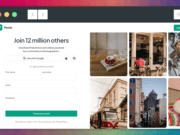No matter what industry you’re in, one factor that always plays a role in success is site speed. While in the days of dial-up, we all understood that site loading could drag on, today you simply have no excuse. Load times exceeding a few seconds compromise everything you’ve worked so hard to build. It’s time to speed things up.
Why Speed Matters
Here’s the bottom line when it comes to speed: for every second it takes your site to load, you lose 20% of your potential customers. That’s a big sacrifice and all the worse for being avoidable. It’s not the only thing at stake, either.

If your site is too slow, you’ll also lose standing in traditional search rankings which means you won’t get as much traffic to your site in the first place. Even if your site has higher quality content and otherwise conforms to site ranking standards, you can compromise everything by failing to invest in the necessary bandwidth, an appropriate hosting platform, or by failing to streamline your site.
Now that you know why speed matters so much, how can you fix your page and keep up with the competition? These 4 strategies can bring you in line with modern page load standards.
Start With Hosting
 Many web page owners don’t put much thought into who their site host is. In fact, most just choose the default host associated with their design platform and leave it at that – at least until problems arise. You need to get ahead of those problems and choose your host for performance from the start.
Many web page owners don’t put much thought into who their site host is. In fact, most just choose the default host associated with their design platform and leave it at that – at least until problems arise. You need to get ahead of those problems and choose your host for performance from the start.
Where should you start when choosing a host? Ranking sites can help guide you through the selection process since it’s a crowded market. If you’re working with WordPress, Bluehost is specifically associated with WordPress and is a top web host offering inexpensive plans – plus a free domain. Another leader is iPage, another WordPress-compatible host. Though slightly less powerful that Bluehost, iPage comes with advertising credits that can boost your page income, but won’t leave you trailing the pack when it comes to speed.
On the other end, there are also brands you should explicitly avoid when choosing a host for your site. WP Engine, Media Temple, and InMotion Hosting all rank at the back of the pack for performance and will weigh your site down. Combine them with a cluttered site or other minor flaws, and you’ll see your entire potential audience jump ship before your page appears on the screen.

When you choose your host, don’t forget to consider the associated security options. Hosting isn’t just about speed and features, but also about user safety. Bluehost and iPage partner with Sitelock for malware and virus prevention, but overall Bluehost boasts a wider variety and more flexible security options when it comes to hosting solutions. Hack proof hosting solutions With new forms of digital identity theft, including ransomware, wreaking havoc on high profile systems, you’ll want to keep your user data under lock and key.
Gauge Your Audience
 Just as a family chooses home internet connection speed based on the number of household members and their behaviors – streaming, online gaming, research, reading the news – website owners also need to adjust their site bandwidth according to the number of views the page draws. The more people you expect on your site, the more bandwidth you’ll need.
Just as a family chooses home internet connection speed based on the number of household members and their behaviors – streaming, online gaming, research, reading the news – website owners also need to adjust their site bandwidth according to the number of views the page draws. The more people you expect on your site, the more bandwidth you’ll need.
The good news is that most hosting sites allow you to select a service tier based on your bandwidth needs. You’ll obviously pay more for a greater level of access, but that’s better than having your site crash all the time. And if you notice that your site has gotten too slow even with a high bandwidth level, you may need to seek out a dedicated server. Sharing a server with other high-demand sites can drag your page down at crucial times and compromise your business.
Pare It Back
 One of the most common reasons for a slow page load speed is that your website is cluttered – and you might not even know it. For example, many pages are weighed down with an assortment of old plugins that you aren’t using. Just because it’s not currently active doesn’t mean it isn’t installed. Go back and sort through those old themes and plugins that you tested out and rejected – and uninstall them. You’ll see your site speed up immensely.
One of the most common reasons for a slow page load speed is that your website is cluttered – and you might not even know it. For example, many pages are weighed down with an assortment of old plugins that you aren’t using. Just because it’s not currently active doesn’t mean it isn’t installed. Go back and sort through those old themes and plugins that you tested out and rejected – and uninstall them. You’ll see your site speed up immensely.
Another way to reduce the load your website is carrying is by condensing all the image files. Images are great for attracting reader attention, but the high-quality shots that most sites use are a real burden on load speeds. If you condense the pictures, you’ll be able to maintain the quality without compromising the efficiency of your page.

Mind The Fold
 Finally, the concept of the fold has been somewhat lost with the decline of the newspaper, but journalists used to use the term all the time; if your article was front page, above the fold, it was big news. You should be applying the concept of the fold – what appears on the first screen of your page without scrolling – in order to improve your site speed.
Finally, the concept of the fold has been somewhat lost with the decline of the newspaper, but journalists used to use the term all the time; if your article was front page, above the fold, it was big news. You should be applying the concept of the fold – what appears on the first screen of your page without scrolling – in order to improve your site speed.
If the content above the fold of your page loads within the first second that a viewer navigates to your site, that typically will give you enough buffer to keep them there while the rest of the page loads. Since it will take them a second to process what’s at the top of the page, you earn some lead-time. Plus, this serves as a reminder to use that upper part of your page wisely; don’t consume the whole thing with a header and push your videos down a little lower on the landing page.
Final Words
 Page speed is a major determinant of success, so don’t bury it behind the content, link building, or visuals like it’s some second string player. Run your page through test sites to determine load time and see how your site stacks up. The faster your page moves – without compromising on quality – the better your business is positioned to perform. Quality construction plus leading content will make your site more than the sum of its parts.
Page speed is a major determinant of success, so don’t bury it behind the content, link building, or visuals like it’s some second string player. Run your page through test sites to determine load time and see how your site stacks up. The faster your page moves – without compromising on quality – the better your business is positioned to perform. Quality construction plus leading content will make your site more than the sum of its parts.





